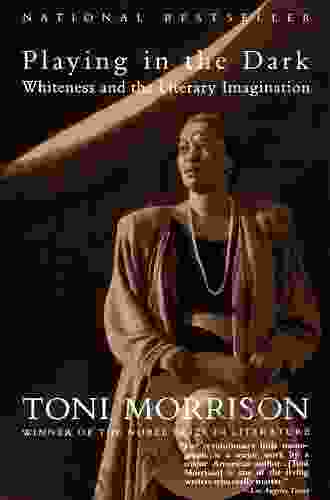Formal and Informal Women's Groups in the Middle East: A Cross-Cultural Perspective

4.4 out of 5
| Language | : | English |
| File size | : | 2250 KB |
| Text-to-Speech | : | Enabled |
| Screen Reader | : | Supported |
| Enhanced typesetting | : | Enabled |
| Word Wise | : | Enabled |
| Print length | : | 260 pages |
The Middle East, a region of rich cultural diversity, is home to a complex and evolving landscape of women's groups, both formal and informal. These groups play a vital role in shaping the lives of women and contributing to the social fabric of the region. This article explores the dynamics of these groups, examining their roles, challenges, and contributions to society from a cross-cultural perspective.
Formal Women's Groups
Formal women's groups are typically established under the auspices of government or non-governmental organizations (NGOs). They often have a specific mission or set of goals, such as promoting women's rights, providing education or healthcare, or advocating for social change. These groups operate within a structured framework, with elected leaders, defined membership, and a clear organizational structure.
Examples of Formal Women's Groups
- Women's Empowerment Forum (Jordan): A non-profit organization dedicated to empowering women through political participation and leadership development.
- Arab Women's Union (Egypt): A government-supported group that advocates for women's rights, provides legal aid, and offers educational programs.
- Women in Leadership Institute (Saudi Arabia): An NGO that provides training and mentorship to women in business and leadership positions.
Formal women's groups offer a platform for women to engage in collective action, advocate for their needs, and influence policy decisions. They provide access to resources, training, and networking opportunities that can empower women to make a meaningful contribution to society.
Informal Women's Groups
Informal women's groups are less structured and organized than formal groups. They may be based on shared interests, cultural traditions, or specific needs, and they often operate on a smaller scale. These groups provide a sense of community and support for members, and they can play a crucial role in preserving cultural heritage and fostering social cohesion.
Examples of Informal Women's Groups
- Women's Majlis (United Arab Emirates): Informal gatherings of women where they discuss current events, share stories, and learn traditional crafts.
- Neighborhood Support Groups (Oman): Women organize to provide assistance to each other during times of need, such as childbirth, illness, or financial difficulties.
- Weaving Collectives (Yemen): Women come together to weave traditional textiles, sharing skills and preserving cultural traditions.
Informal women's groups offer a safe and supportive space for women to connect, share experiences, and support each other. They play a vital role in preserving cultural traditions, building social networks, and providing emotional support to members.
Cross-Cultural Perspectives
While women's groups in the Middle East share some common characteristics, there are significant variations across different cultures. These variations stem from factors such as religious beliefs, social norms, and economic conditions.
Impact of Religion
Religion plays a significant role in shaping the dynamics of women's groups in the Middle East. In some countries, religious laws and traditions may limit women's participation in public life and restrict their ability to establish or lead groups.
Social Norms
Social norms regarding gender roles and women's behavior can also influence the formation and activities of women's groups. In some cultures, women may be expected to focus on family and domestic responsibilities, limiting their involvement in external activities.
Economic Conditions
Economic conditions can also impact the formation and activities of women's groups. In areas with high levels of poverty, women may have limited access to education, resources, and time to participate in group activities.
Challenges and Opportunities
Women's groups in the Middle East face a range of challenges, including:
- Cultural and religious barriers: In some societies, women may face restrictions on their ability to participate in public life and engage in collective action.
- Lack of resources: Many women's groups operate with limited funding and resources, making it difficult to sustain activities and achieve their goals.
- Limited political participation: Women's groups may face obstacles to participating in political processes and influencing policy decisions.
Despite these challenges, women's groups in the Middle East are also presented with opportunities for growth and impact:
- Growing awareness of women's rights: Increasing awareness of women's rights and gender equality is creating a more supportive environment for women's groups.
- Access to technology: Technology and social media offer new ways for women to connect, share information, and mobilize for change.
- Support from international organizations: International organizations and donor agencies are providing funding and support to women's groups, enabling them to expand their activities and impact.
Formal and informal women's groups in the Middle East play a vital role in enhancing women's lives and contributing to social change. From advocating for women's rights to preserving cultural traditions and providing support networks, these groups empower women and make a meaningful impact on their communities. By understanding the dynamics, challenges, and opportunities facing women's groups in the region, we can support their continued growth and impact, fostering a more just and equitable society for all.
4.4 out of 5
| Language | : | English |
| File size | : | 2250 KB |
| Text-to-Speech | : | Enabled |
| Screen Reader | : | Supported |
| Enhanced typesetting | : | Enabled |
| Word Wise | : | Enabled |
| Print length | : | 260 pages |
Do you want to contribute by writing guest posts on this blog?
Please contact us and send us a resume of previous articles that you have written.
 Book
Book Novel
Novel Page
Page Chapter
Chapter Text
Text Story
Story Genre
Genre Reader
Reader Library
Library Paperback
Paperback E-book
E-book Magazine
Magazine Newspaper
Newspaper Paragraph
Paragraph Sentence
Sentence Bookmark
Bookmark Shelf
Shelf Glossary
Glossary Bibliography
Bibliography Foreword
Foreword Preface
Preface Synopsis
Synopsis Annotation
Annotation Footnote
Footnote Manuscript
Manuscript Scroll
Scroll Codex
Codex Tome
Tome Bestseller
Bestseller Classics
Classics Library card
Library card Narrative
Narrative Biography
Biography Autobiography
Autobiography Memoir
Memoir Reference
Reference Encyclopedia
Encyclopedia Lan Sluder
Lan Sluder Tammi Morrison
Tammi Morrison Dean Mosman
Dean Mosman Jesse Trushenski
Jesse Trushenski Debra Valencia
Debra Valencia Peggy A Ertmer
Peggy A Ertmer Michelle Segrest
Michelle Segrest Helene Tursten
Helene Tursten Jane Davis
Jane Davis Seth Zuiho Segall
Seth Zuiho Segall Paula Jacobsen
Paula Jacobsen Deborah L Rhode
Deborah L Rhode Lou J Berger
Lou J Berger Anita Gray
Anita Gray Joseph Bottum
Joseph Bottum Debby Mcmullen
Debby Mcmullen Marco Pons
Marco Pons Michael A Sheehan
Michael A Sheehan Helen D Hume
Helen D Hume Felix Salten
Felix Salten
Light bulbAdvertise smarter! Our strategic ad space ensures maximum exposure. Reserve your spot today!

 Henry JamesCorneal Infection And Inflammation Colour Atlas: An Indispensable Guide for...
Henry JamesCorneal Infection And Inflammation Colour Atlas: An Indispensable Guide for... Dave SimmonsFollow ·5.2k
Dave SimmonsFollow ·5.2k John ParkerFollow ·13.4k
John ParkerFollow ·13.4k Jessie CoxFollow ·19.4k
Jessie CoxFollow ·19.4k Jacob HayesFollow ·4.5k
Jacob HayesFollow ·4.5k Ted SimmonsFollow ·16.2k
Ted SimmonsFollow ·16.2k Sean TurnerFollow ·2.2k
Sean TurnerFollow ·2.2k Eugene ScottFollow ·6.2k
Eugene ScottFollow ·6.2k Anthony BurgessFollow ·2.1k
Anthony BurgessFollow ·2.1k

 Finn Cox
Finn CoxEmpowering School-Based Professionals: A Comprehensive...
: The Role of School-Based Professionals in...

 F. Scott Fitzgerald
F. Scott FitzgeraldThe Santa Fe Trail Twentieth Century Excursion: A...
Get ready to embark on an...

 Kendall Ward
Kendall WardThe Ultimate Trivia Guide to Bruce Springsteen and the...
Bruce Springsteen...

 Jedidiah Hayes
Jedidiah HayesThe Trouble with Lacy Brown: Texas Matchmakers - A...
Prepare to be swept...
4.4 out of 5
| Language | : | English |
| File size | : | 2250 KB |
| Text-to-Speech | : | Enabled |
| Screen Reader | : | Supported |
| Enhanced typesetting | : | Enabled |
| Word Wise | : | Enabled |
| Print length | : | 260 pages |














